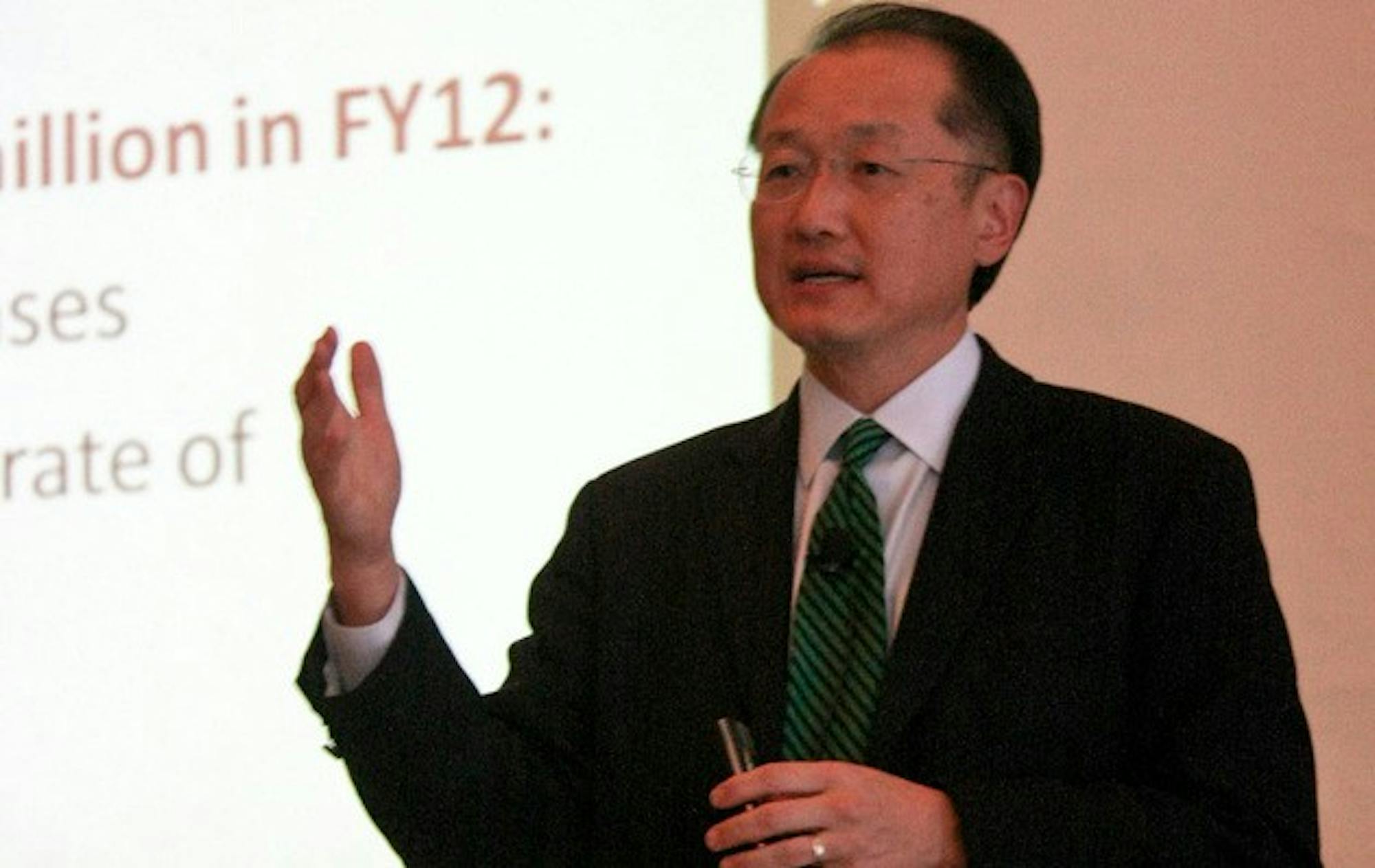"We must restructure now the sooner we do it, the quicker we can get to growth," Kim said.
One budget initiative will be the renovation of Thayer Dining Hall, Kim said. The College had originally planned to build the Class of 1953 Commons, a new dining and social facility, near the McLaughlin cluster using a $12-million donation from the Class of 1953. Kim announced at the forum that the money will be allocated instead to renovate Thayer Dining Hall, which will be renamed in honor of the donors.
Savings from the investments found the improved sustainability of the dining hall will cover the difference between donations and the costs of the renovations, making the project budget-neutral, according to Kim.
Renovation will start this Summer term and finish by fall 2011, Kim said. Thayer will continue to operate during construction.
Kim also suggested the creation of a national institute for health care delivery science as a new source of revenue. The institute would make ongoing research about health care delivery currently being conducted at Dartmouth available to doctors, hospitals, governments and other organizations nationwide.
"We think that we, as an academic institution, can do a lot of the hard work to get [health care delivery] under control," Kim said.
Kim said lump-sum donations, which have been proposed as a potential solution to the College's budget woes, can play a limited role at best. Although the deficit stands at $100 million, donations would have to greatly exceed that shortfall to keep the College in the black.
"It wouldn't be a gift of $100 million, but of $2 billion, that would generate $100 million per year," Kim said.
Kim also mentioned that many donations are given for specific initiatives, meaning the College cannot put many of the donated funds toward the deficit.
"People don't like to give you money to fill in gaps in the budget they like to give money to do very specific things," Kim said, citing gifts given specifically for the development of the Visual Arts Center and an indoor golf practice area.
Kim has charged the administration with growing annual giving "as aggressively as we possibly can," said Carolyn Pelzel, Dartmouth's vice president for development and one of the members of the panel at the forum.
Donors have recently given roughly $40 million per year, but Kim is looking for more, Pelzel said. Kim hopes to increase annual giving by at least 10 percent per year, according to Pelzel.
The College expects its endowment to grow by about 5 percent this year, Kim said, although he warned against relying on potential endowment growth to meet budget shortfalls.
Despite the economic turnaround, the College could implement another round of layoffs, Kim said, adding that Dartmouth will continue to root out inefficiencies in its operations.
"The more efficient we are, the fewer layoffs will be necessary," he said.
While Kim discussed possible budget measures, members of the SEIU Local 560 demonstrated in protest of planned layoffs.
"We have not been invited to the table for discussions, but we're willing to offer solutions," Peter Marsh, a longtime employee for the College, said at the protest. "My family has worked for Dartmouth for five generations and we are a part of the Dartmouth experience."
Kim said that the protest was "an indication of how invested people are," Kim said.
Panelists at the forum including Senior Vice President Steven Kadish, acting Provost and Dean of the Faculty Carol Folt and acting Dean of the College Sylvia Spears reiterated that the College may increase class sizes as a financial remedy.
Folt said that the need for support staff and additional faculty must be considered as changed to class size are proposed.
"It would only probably add 50 students to the class size," Folt said.
There have been no decisions made about financial aid, Kim said.
"We will definitely maintain need-blind admissions," Kim said. "That's something we will never break away from."




